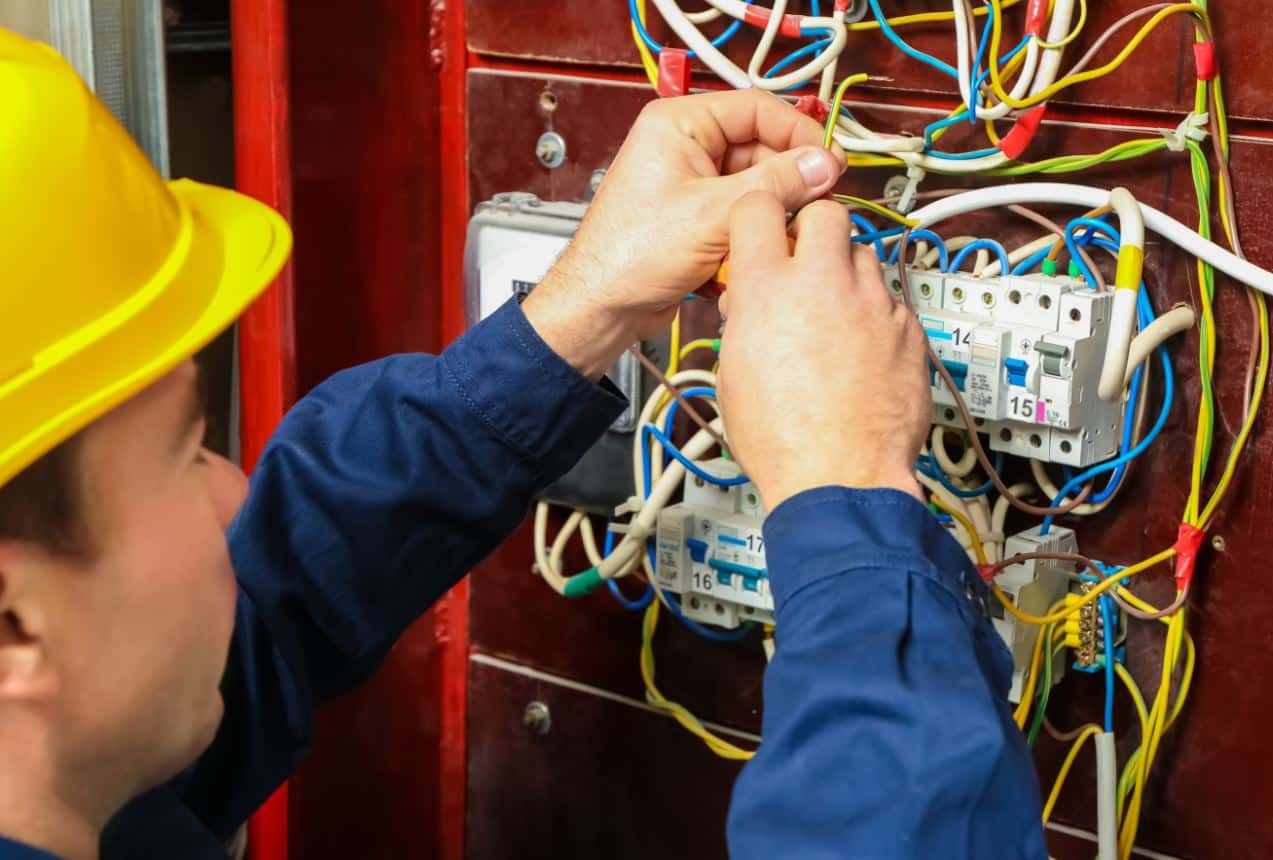Electrical wiring in any property is complex, and repairs and alterations should only ever be tackled by a registered and fully qualified electrician. How do you know who to trust?
Publication of the 18th edition of the UK Wiring Regulations – also known as BS 7671 – has put electrical safety in the news. The new stricter regulations, which affect commercial landlords and property owners, came into force on 1st January 2019.
It is the national standard to which all electrical installations must conform and an essential qualification for anyone working in the electrical industry. And remember, for insurance purposes, buildings containing two or more flats are considered commercial property.
However, while it may not affect you directly because communal areas of flats, along with non-commercial domestic properties, fall under Part P of the Building Regulations for electrical safety, it’s still good to know that your electrical contractor is fully up to date with the law and is well-qualified.
If electricians undertaking work covered by Part P on your premises are registered as competent persons, they are deemed to have the skills and knowledge to undertake and certify their own notifiable work.
Anyone who cannot prove to you that they are registered with a self-certification scheme – including any do-it-yourself enthusiasts – will need to notify or submit plans for notifiable work – see below for more on this – to a Building Control Body (BCB).
However, as a homeowner, director of an RMC or RTM company, property manager or landlord responsible for managing a block of flats, it is you who is ultimately responsible.
You must have ensured and be able to prove that all notifiable electrical installation work on your property meets the requirements of Part P, either by having a certificate from the contractor or Building Control Body.
Otherwise, beware – you will be committing a criminal offence. Local authorities have the power to make homeowners or landlords remove or alter any work that does not meet the requirements of Building Regulations.
What is notifiable work and who do you notify?
Electrical work in a dwelling, or associated with its surroundings, is notifiable to a local building control body where it includes:
- circuit alteration or addition in a special location*
- installation of one or more new circuits
- installation of a replacement consumer unit (fuse box)
- rewire of all circuits
- partial rewire
- new full electrical installation (new build)
- An alteration or addition to an existing circuit in a room containing a bath or shower is notifiable only where carried out within a specified space surrounding a bath or shower
* Certain zones within a room containing a bath or shower, or a room containing a swimming pool or sauna heater.
Where an electrical contractor is registered as a Competent Person; they can certify their own notifiable work.
What is a Building Control Body?
Building Control Bodies (BCBs) are responsible for checking building work to verify that it complies with building regulations. There are two types of BCBs: Local Authority Building Control (LABCs) and private sector Approved Inspectors – businesses which work in the private sector as an alternative to LABCs. You can choose which type of BCB you use on a project. Their role is the same and can include:
- Giving advice about how the Building Regulations apply to your work
- Checking your plans
- Issuing a plans certificate (if requested)
- Inspecting the work as it progresses
- Issuing a final certificate.
All Approved Inspectors are required to be registered with CICAIR, the body responsible for issuing a licence to operate.
How do I find an approved electrician?
Click here and you can search the Competent Persons register for electricians as well as check a competent person and download a free DCLG leaflet about building regulations.
Plus…..
Word of Mouth: Ask around.
Get a quote from at least three electricians, not least to ensure the price is competitive.
Leave them feedback. If you’ve found a good electrician leave them feedback, both online and direct in an email or letter. Your comments could help someone else in future!
You may also be interested in Health & Safety Risk Assessments.
FP546 (reviewed June 2021)
The opinions and views expressed in the above articles are those of the author only and are for guidance purposes only. The authors disclaim any liability for reliance upon those opinions and would encourage readers to rely upon more than one source before deciding based on the information.
